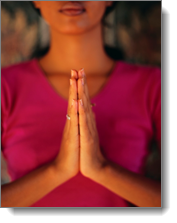A study published in the January issue of the American Journal of Psychiatry examines the effect of religion and spirituality on depression. Those claiming that religion was important to them only had approximately 1/10th the risk of experiencing depression – compared to those not holding religion in high esteem.
 Personally, I can speak well to this study’s findings. I’m a practicing Catholic, but prior to the year 2000, I waxed and waned when it came to the “practicing” part. Mood disturbances, although not severe, were more common for me back then. Since recommitting myself to a pattern of more formalized religion – which includes daily prayer as well as regular attendance at Mass, I rarely have any dysphoric mood symptoms. And when I do, I attribute the symptoms to sleeplessness with its attendant fatigue.
Personally, I can speak well to this study’s findings. I’m a practicing Catholic, but prior to the year 2000, I waxed and waned when it came to the “practicing” part. Mood disturbances, although not severe, were more common for me back then. Since recommitting myself to a pattern of more formalized religion – which includes daily prayer as well as regular attendance at Mass, I rarely have any dysphoric mood symptoms. And when I do, I attribute the symptoms to sleeplessness with its attendant fatigue.
I find the word spirituality somewhat perplexing. I’ve actually asked many people I’m close to what it means to them, if anything at all. The answers I received were divergent, but mostly centered on prayer themes.
Religion, on the other hand, is more easily definable for me. It is linked to a place of worship, often at specified times of the day or week. I like that it’s structured. I find it centering and grounding. And with a belief system firmly rooted in the concept that God is good, my Church serves as a safe haven where I can thank God, or ask for grace, strength and guidance to face the tribulations of daily life. There’s peace and contentment in this, something that only a Supreme Being can deliver. So I believe.
It has been most refreshing to learn that more and more mental health professionals are incorporating spirituality and religion into their recommended treatment plans. Seminars and workshops on this subject are popping up all over the place.





Leave A Comment
You must be logged in to post a comment.